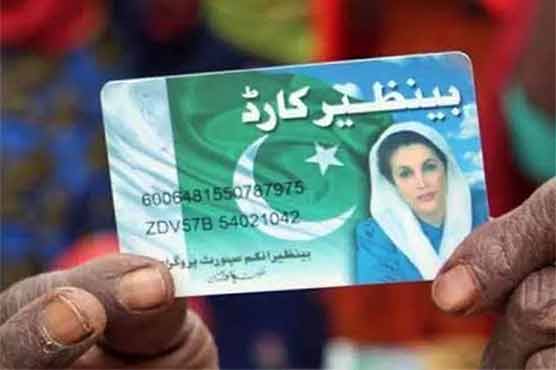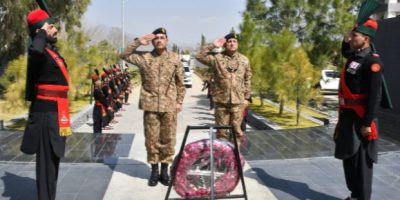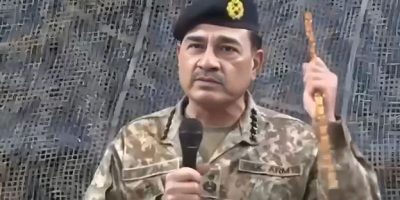FIA Punjab Zone-1 begins probe against 16 govt officers and their wives in BISP corruption case

ISLAMABAD, FEB 08 (DNA) : The Federal Investigation Agency (FIA) Punjab Zone-1 has initiated an investigation against 16 government officers and their wives who allegedly fraudulently benefited from the Benazir Income Support Program (BISP) assistance meant for the poor and destitute.
A list of officers who will be interrogated by a special team headed by Director FIA Punjab Zone-1 includes 10 government officers of grade 17, two of grade 18, three of grade 19 and one senior officer of grade 20.
Domestic and foreign accounts and assets of wives of those 16 government officers are also being investigated.
According to sources, Director FIA Punjab Zone-1 has been himself monitoring the inquiry on the directives of the FIA’s director general, and the names of those officers will not be made public until completion of the investigation.
Special teams are investigating into irregularities in the BISP funds between the years 2010 to 2018.
On Jan. 29, Special Assistant to Prime Minister (SAPM) on Accountability Shahzad Akbar told the media that the government has referred cases against more than 2,000 government employees who benefited from the BISP to the FIA.
He said the government has also written to all chief secretaries and the Establishment Division for taking departmental action against, and recovering funds from, the government officers who benefited from BISP, which is aimed at providing financial support to the deserving families.
The FIA has been directed to lodge criminal cases against the government officers involved in the corruption and the people who assisted them in the withdrawing of BISP funds because the expenditure was carried out from the federal budget as explained by the SAPM who terming the matter “a straightforward case of fraud”.
Earlier, the Federal Bureau of Revenue (FBR) began a stern disciplinary action against as many as 196 of its employees who had been benefiting from the BISP.
A list formed by the FBR includes seven government officers of grade 17, two of grade 14, 10 of grade 11 and others.
In a post on Twitter, BISP Chairperson Dr Nishtar had revealed that (in total) 2,543 government officers of grade-17 and above had got themselves registered among the beneficiaries from the social safety net and received the assistance meant for the poorest of the poor. They have been excluded from the program.
“True: 2,543 exited from BISP_Pakistan are government officers/their spouses of Grade 17 and above and their names have been exited,” she had written on her Twitter account, adding that the social safety net had initiated disciplinary action against these officers.
The BISP had also written to the provincial chief secretaries and federal ministries whose officers had illegally enrolled themselves as BISP beneficiaries. They were informed that action was underway against those people.
To avoid such irregularities in future, appropriate measures had been taken under the government’s Ehsaas programmer reforms, the BISP chairperson had added.
As many as 1,122 officers of Grade-17 and above from Sindh had been BISP beneficiaries, according to official data, from Balochistan where 741 government officials were signed up for the poverty alleviation scheme, from Khyber Pakhtunkhwa, 403 government officials availed the BISP funds, and 137 did so from Punjab.
Even from the federal government, 62 officers received the program funds. Additionally, one officer of the Pakistan Railways, 22 of Pakistan-administered Kashmir, and 49 of Gilgit-Baltistan were also observed as undeserving recipients of the BISP. From within the BISP itself, six officers were listed among the beneficiaries.
Out of total 820,165 beneficiaries disqualified from the BISP database, 14,730 were government employees or servants of railways, post office and the BISP program as the aid was not meant for government servants. According to the data, 127,826 were those whose spouses were government employees or employees of the above-mentioned departments.
‘Non-deserving beneficiaries delisted for transparency’
On Dec. 26, Dr Sania Nishtar had revealed that over 800,000 “non-deserving” beneficiaries of the BISP were disqualified for giving space to the needy people on the basis of promoting transparency and merit.
During a press conference in Islamabad, Dr Sania had asserted that measures have been taken to secure due rights for the deserving people only, and that whole procedure for inclusion in BISP has been made apolitical.
She had said that the disqualification criteria includes travel history of the member, vehicle ownership, availing facility of executive services for passport and National Identity Card (NIC) and service in government sectors.
She had termed inclusion of 216 villages located alongside restive Line of Control (LoC) in Kifalat Program “another milestone of the Ehsaas Program.”
She had said people of these villages were the most deserving due to their frequent economic losses as due to cross border firing from the Indian side of the border.
On Dec. 24, the federal cabinet had approved removing 820,165 beneficiaries from the BISP database, while terming them as “undeserving”.
Importantly, Dr Sania had also informed the cabinet that in view of some complaints and a need to update the BISP data, the survey was reexamined with the help of the National Database and Registration Authority (NADRA).
She had said that during the reexamination some aspects were analysed. For example, she had added, it was ascertained whether the family of a beneficiary had any motorcycle or car or whether a spouse was a government employee. The cabinet was told that those who had over 12 acres of land did not fall in the category of “deserving” people. After the exclusion of 820,165 people, really deserving people would be included in the program.
The alterations in the BISP database were made after some cabinet members had expressed reservations in the previous meetings claiming that the supporters of opposition parties, particularly those backing the Pakistan Peoples Party (PPP), were benefiting from the program, while those belonging to the ruling Pakistan Tehreek-e-Insaf (PTI) were being neglected.
‘Over 140,000 govt employees in BISP’
Out of total 820,165 beneficiaries disqualified from the BISP database, 14,730 were government employees or servants of railways, post office and the BISP program as the aid was not meant for government servants. According to the data, 127,826 were those whose spouses were government employees or employees of the above-mentioned departments.
It further revealed that 153,302 among them were those who traveled abroad once and 195,364 were those whose spouses traveled abroad once. The number of beneficiaries who traveled abroad more than once stood at 10,476.
Similarly, 166,319 spouses traveled abroad more than once.
The BISP removed 692 people as they owned one or more than one vehicle, while 43,746 were deprived of the benefit because their spouses have one or more than one car.
Furthermore, a person who can pay Rs 1,000 of telephone bill on monthly basis is not considered “eligible” to get monthly stipend from the program and, hence, 24,546 people were removed under this category. Likewise, 155,767 were discarded from the database as their spouses paid Rs 1,000 or more telephone [PTCL, mobile] bill.
For applying passports via executive centers, 666 beneficiaries were removed and 580 were dropped as their spouses applied passports via executive centers.
A total of 36,970 people were thrown out from the list of BISP beneficiaries because three or more than three members of their family paid executive fees for obtaining CNICs.
Launched in July 2008, the BISP is Pakistan’s largest social safety net, catering to women and benefiting around 5.4 million people, according to data released in 2016.
Related News

Use of Afghan soil for terrorism unacceptable: CDF Munir
ISLAMABAD, MAR 4 /DNA/ – Field Marshal Syed Asim Munir, NI (M), HJ, COAS &Read More

Peace between Pakistan and Afghanistan hinges on Taliban regime ending terrorists support: CDF Munir
ISLAMABAD, MAR 4: Chief of Defence Forces (CDF) and Chief of Army Staff (COAS) FieldRead More


Comments are Closed